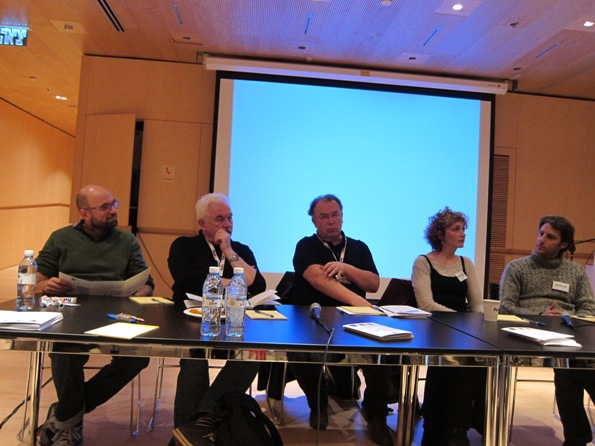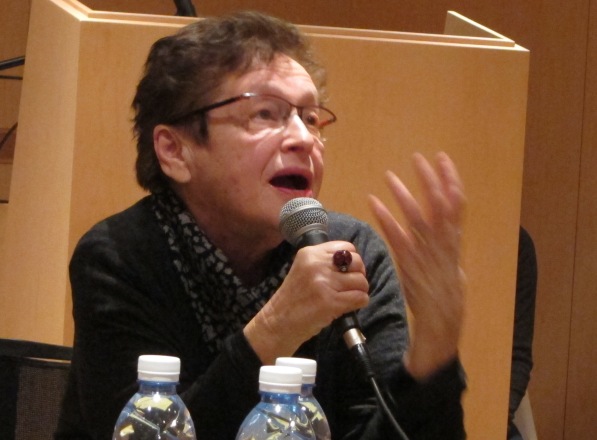
Among the abundant offerings at the Epos International Art Film Festival that took place in February, one of the most intriguing was “The Dramatic Arena,” a master class for the development of feature films on artists, authors, musicians and other creative figures. A stellar panel of experts was on hand to share their experiences with the participants, and offer individual advice to a select group of Israeli filmmakers who presented their own projects. International guest panelists Kevin Hood (Becoming Jane 2007), Lech Majewski (The Mill and the Cross 2011) and Philipp Stölzl, were joined by Israeli filmmaker Lina Chaplin, actress Yevgenia Dodina and actor Zak Berman. The master class was curated and moderated by Ruth Lev-Ari.
In the morning session, scenes from the films were shown, with each filmmaker discussing the different aspects of the process. The reasons for making a film focused on an artist or literary figure are many and varied, both Hood and Stölzl were invited to come on board projects with existing scripts, while Majewski, who has made several art films, views working on a film as part of his “spiritual growth” saying “I prefer to spend time with them [artists] than gangsters and cops.” Chaplin, discussing the making of Paper Snow (Lina and Slava Chaplin 2002), a film about the relationship between the legendary Israeli actress Hana Rovina and poet Alexander Penn, said, “Slava and I came from Russian culture and it was important for us to remind people that Hebrew culture and theatre originated in Russian culture.”

The films of the speakers were dramatically different from one another, yet in their comments it seemed that they all shared the opinion that in making a feature film, conveying a dramatic story and fidelity to the internal truth of the character and her or his personal journey is far more important than delivering a historical biography that includes every detail in chronological order. The challenge when working on a historical figure is to conduct exhaustive research, become familiar with all the details of the character and the period, then use that knowledge to convey the essence of the time, place and individual. Majewski reported that he engages his friends in the research, asking them to read everything they can about the subject then tell him about it: “If something hooks into my brain, it stays.” With Anne Hathaway playing Jane Austen, Hood recalled that at times he had to “struggle not to give up script” and allow Americanisms to slip in.
During the afternoon session, Israeli filmmakers presented their projects in process and received advice from Hood, Majewski and Stölzl. Presenting were: Naamit Mor Haim, Gitit Shimon, Zohar Oryah, Miri Shapiro, Eyal Datz and Noam Vardi, Dini Zvi-Riklis and Yifat Prestelnik. The atmosphere was warm and very open, a lively conversation among people with a common interest in filmmaking and the arts. It was an incredible opportunity to share ideas-in-progress with a supportive and accomplished panel of listeners.
The three filmmakers gave close attention to the projects presented, asking questions and making creative suggestions. Sometimes they encouraged the presenters to be more daring, as when Stölzl told a presenter, “In a movie you want to be more crazy, courageous and provocative.” Sometimes urging caution, as when Hood said, “Ideas take time. You might have half an idea that you really like and you may need to wait ten years to get the other half.” It was always fascinating to hear their different perspectives; the master class was an exceptional learning experience. Majewski even directed one of his comments to a much wider audience, and I quote his advice here: “All Israeli movies apart from Lebanon, stop using the close-up!”






[…] Elder’s 1564 painting The Procession to Calvary, shown at EPOS 3. Majewski participated in The Dramatic Arena 2013), music or sculpture. Investigating the concept of adaptation and its process were international […]
Comments are closed.